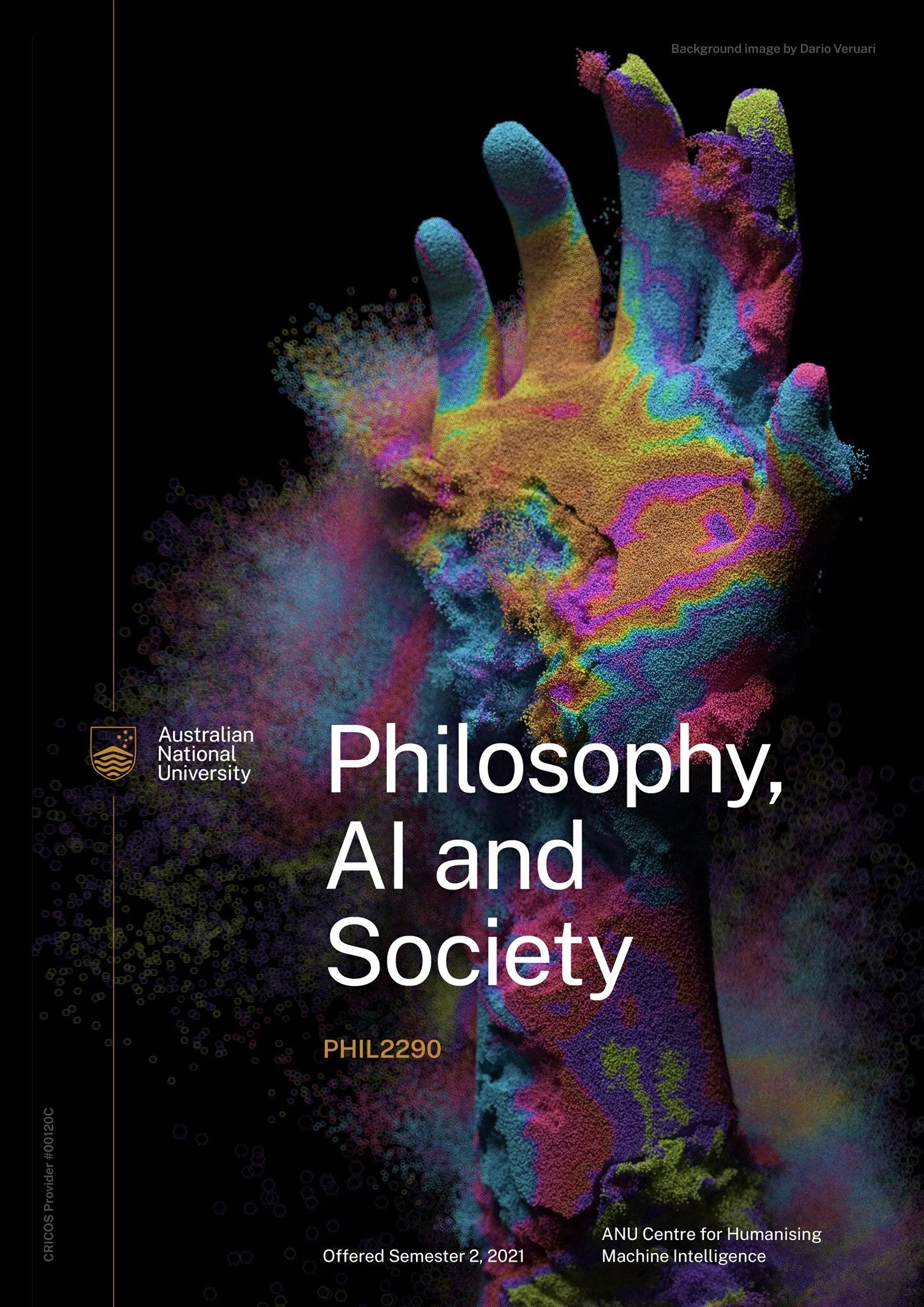Sarita Rosenstock (course convener), Pamela Robinson and Mario Guenther will be running a course on philosophy, AI and society during Semester 2, 2021.
Read MoreSeth Lazar gave a tutorial on power in political philosophy to attendees of the ACM FAccT conference on Thursday the 4th of March 2021. Click through for more information.
Read MoreAtoosa Kasirzadeh presented ‘Reasons, Values, Stakeholders: A Philosophical Framework for Explainable Artificial Intelligence’ at the ACM Conference Proceedings on Fairness, Accountability, Transparency (FAccT) 2021. Click through for more information.
Read MoreBrian Hedden (Australian National University) gave the first HMI DAIS Seminar of 2021. Click through for more information.
Read MoreRogier Creemers, Angela Zhang and John Lee presented ‘Chinese Tech and the Part State: Privacy, Profit and Power’ on May 26th 2021. Click through for more information.
Read MoreAI LEAP is a new annual conference that aims to foster intellectual exchanges among disciplinary and trans-disciplinary experts, drawing broadly on computer science, the social sciences, and the humanities, without centering any one perspective at the expense of others. Click through for more information.
Read MoreThis four-part seminar series will explore alternative strategies for governing data and the digital economy. It is presented by the ARC Centre of Excellence for Automated Decision-Making and Society, in combination with the Humanising Machine Intelligence project at the Australian National University, and the Centre for Artificial Intelligence and Digital Ethics at Melbourne Law School, University of Melbourne. Click through for more information.
Read MoreJoin us at the 4th AAAI/ACM Conference on AI, Ethics, and Society - 19-21 May 2021!
Read MoreShould decision-making algorithms be held to higher standards of transparency than human beings? The way we answer this question directly impacts what we demand from explainable algorithms, how we govern them via regulatory proposals, and how explainable algorithms may help resolve the social problems associated with decision making supported by artificial intelligence. Some argue that algorithms and humans should be held to the same standards of transparency and that a double standard of transparency is hardly justified. We give two arguments to the contrary and specify two kinds of situations for which higher standards of transparency are required from algorithmic decisions as compared to humans. Our arguments have direct implications on the demands from explainable algorithms in decision-making contexts such as automated transportation.
Read MoreThis entry is an analysis of the fairness principle as provided for in Article 5(1)(a) of the General Data Protection Regulation. The analysis tracks this principle's uncertain contours and also points to its constitutional foundations with reference to Article 8 of the Charter of Fundamental Rights of the European Union.
Read MoreChildren and young people throughout the world have felt the effects of Coronavirus Disease 2019 and the decisions made in response to the public health crisis acutely. Questions have been raised about adequately protecting children’s privacy, as schooling, play and socialising went almost exclusively online. However, due to the historical lack of children’s rights being embedded throughout decision-making processes (including important participation rights), the effects of the increased surveillance as a result of the pandemic have not been thoroughly considered. This article pursues three objectives. First, it seeks to develop the literature on the enabling aspects of privacy for children in relation to education and play. Second, it seeks to expand the discussion on the exploitative risks endemic in not protecting children’s privacy, including not only violent harms, but commercial exploitation. Third, it suggests some policy responses that will more effectively embed a children’s rights framework beyond the ‘parental control’ provisions that dominate child-specific data protection frameworks.
Read MoreChildren's Rights and eSports.
Read More











